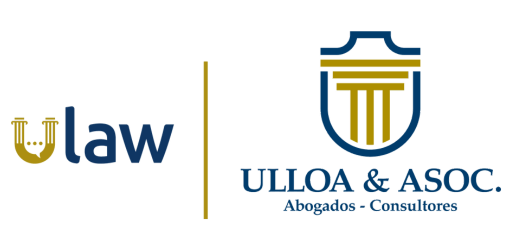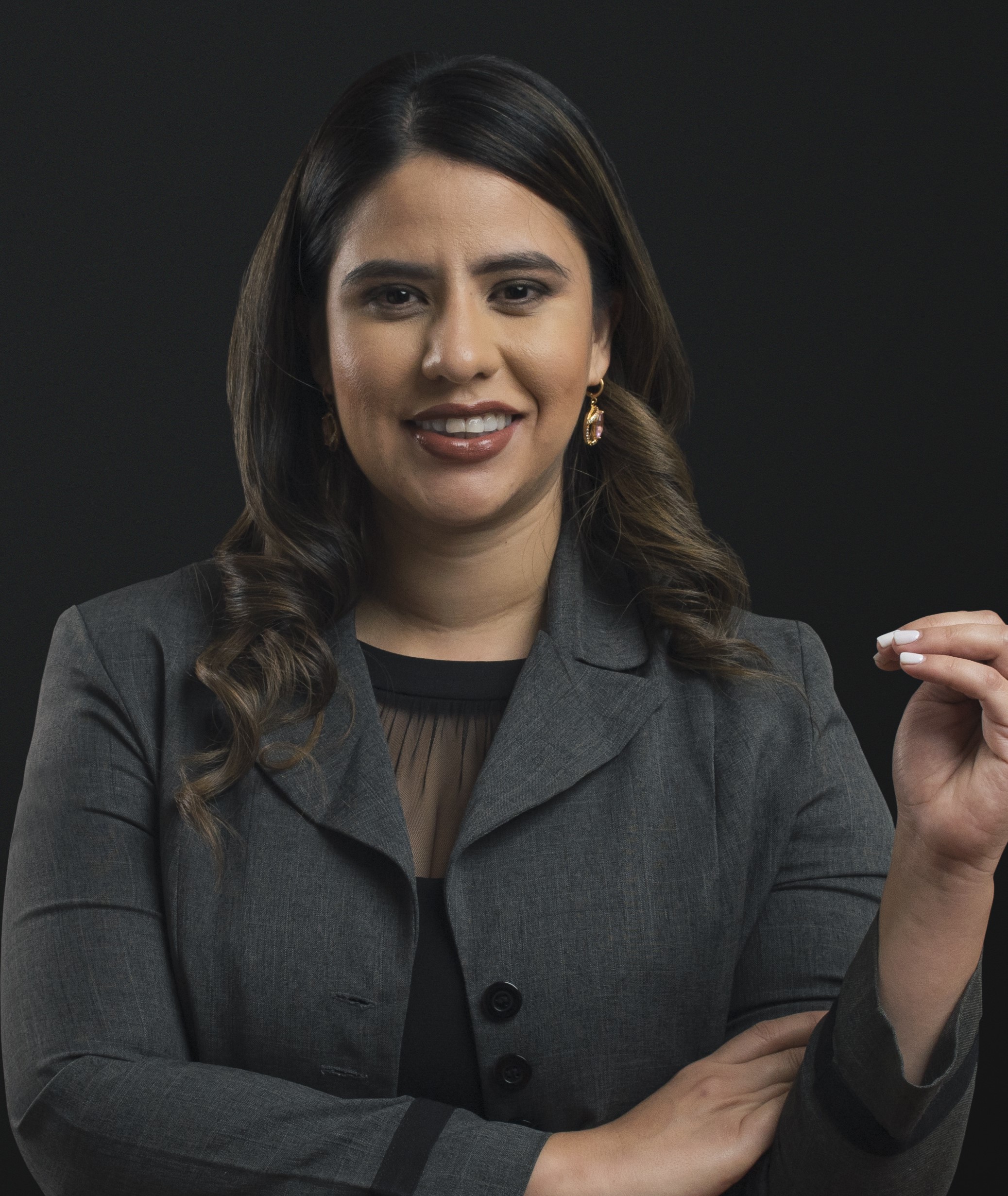
Cambitions in Honduras (2021-2022)
During the years 2021 and 2022, significant changes have been made to the national legislation that, depending on the interests of businessmen, the change may mean a benefit or a contrario sensu, something that negatively impacts national politics and economy. The most significant changes are the following:
-
By means of an Agreement, the Income Tax for individuals was adjusted by 4.01% according to the inter-annual variation of the Consumer Price Index (CPI) published by the Central Bank of Honduras. This means that withholding agents, the companies, must use this adjustment to calculate the amount of the monthly withholding of employees as of January 1, 2021. This implies a reduction in the payment of taxes for salaried employees.
-
The General Seed Regulations were created by means of an Agreement to regulate the production, import, export, processing and marketing of seeds or vegetative material at the national level, whose provisions must be complied with by all agents involved in the process, including products, processors, seed traders, public officials and employees. This is of interest to the agro-industrial guild, which is very strong in the country.
-
The Electronic Signature Law was created in 2013, but was not sufficiently used or informed by public officials. Due to the health emergency caused by the Covid-19 Pandemic, and the lack or little circulation due to the state of exception (curfew), the State improvised its online portals and with it, the use and application of the Electronic Signature. Therefore, by means of an Agreement, the Law of Electronic Signatures of 2013 was reformed, in the sense of requiring and allowing the use of electronic signature in a general way to prove the existence of obligations, likewise to homologate the electronic signatures created or used outside the Republic of Honduras so that they produce the same legal effects as a signature created or used in Honduras. Very important is the updating and ratification of Decree 33-2020 concerning the fact that all types of acts, contracts and any other type of legal business may be executed by electronic means, as long as it is possible to reliably show the will of the parties to carry out the legal business by such means. This has been a provision that has benefited investment and industry in Honduras.
-
After thirteen years, the Government created the Regulations of the Consumer Protection Law, since it was imperative to complement this body of law.
-
The Law for the Promotion and Strengthening of the Electricity Industry Market was created by means of a Legislative Agreement, the purpose of which is to create the conditions for the agents of the National Electricity Market to compete under free market rules in the generation, distribution and commercialization of electricity in the national territory.
-
A high percentage of our economy is generated by industry, industry that is under "Special Regimes" granted and authorized by the State. With these special regimes granted to the industry and other entrepreneurs, obligations are generated that each beneficiary of such regime must comply with, such as notifying when it is competent, the change of legal representative or the significant changes suffered by the beneficiary or user mercantile company of such regime. Therefore, and with the purpose of simplifying the manner of making these notifications, the Procedure for the change of legal representative and change of name or corporate name in the beneficiary or user mercantile companies of special regimes was created by means of an Agreement issued by the Secretary of State in the Offices of Economic Development.
-
The Tripartite Agreement was approved within the framework of the Negotiation for setting the minimum wage for the years 2022 and 2023, which will govern the entire country according to economic activities, company size and amounts.
-
In order to grant benefits and tax incentives to promote the creation, development, strengthening and formalization of Micro and Small Enterprises (MSE), and to contribute to the improvement of the economy and the capacity for entrepreneurship and innovation, as well as the generation of new employment opportunities for the population, the "Law for the Recovery and Economic Reactivation of Micro and Small Enterprises" was created by Legislative Decree.
-
The Tax Administration approved and agreed to classify taxpayers according to the categories of small, medium and large taxpayers. This is influential since, depending on the classification granted to a taxpayer, be it a commercial company, so will be its tax obligations such as the filing of affidavits, informative statements and reports through the applications, platforms, sites or other electronic mechanisms that the Tax Administration makes available for such purpose, otherwise they will be subject to penalties already established in the Tax Code.
-
An incentive to employers in certain areas and items, was the Hourly Employment Law that was created in 2014, but with the change of Government from 2021 to 2022, and by means of a Legislative Decree, such Law was repealed, therefore, the employees that had been hired under the hourly employment modality, once the repeal came into effect, were under the protection of the ordinary provisions related to Labor Law. This resulted in the loss of thousands of jobs.
Advantages of doing business in Honduras.
One of the great advantages of Honduras as a source of business has been and will be its geographical location, located in the heart of America with coasts on the Pacific and Atlantic Ocean, which provides direct access to key markets, facilitating the transportation of people, goods and merchandise both nationally and internationally. According to research conducted by the National Investment Council (CNI) (https://www.cni.hn/), it is achieving leadership in the region with air, land and maritime communication channels that facilitate the operation of cargo movements and logistics centers, making the country an attractive territory for the development of commercial and industrial infrastructure megaprojects.
The primary advantage would be to have legal certainty as the guarantee of the equality of all before the law, so that the rights of all persons and their property are respected and guaranteed. The person, as the primary purpose of the State, must have the certainty of the right of citizens to have their legal situation modified only through regular procedures and established legal channels, previously and duly approved. The Constitution of the Republic ensures that no one can be judged except by the competent judge or court, with the formalities, rights and guarantees established by law; also, the State has signed and ratified international instruments committing itself to the real fulfillment of the guarantees of due process, which is why the actions of all institutions that protect legal security in Honduras are indispensable and effective, not only for nationals but also for foreigners. However, it is not a mystery that the change of government has generated some uncertainty for national businessmen and foreign investors, because laws have been repealed that were considered to bring benefits not only for investors but also for small national entrepreneurs. Likewise, public institutions have been created to encourage and promote investment, always in strict adherence to generate greater legal certainty in the country.
In general, foreigners or investors have the following guarantees established in the Constitution of the Republic and the laws:
-
The principle of national treatment.
-
The non-application of market access limitations to natural or juridical persons that establish their investments in Honduras.
-
The right to transfer abroad in currency or securities, at its option, the proceeds of its profits, capital gains, dividends, royalties and considerations for the use and transfer of its proprietary technology, or the total of its investments.
-
The right to access credit in the National Financial System under the same conditions as national natural or legal persons.
-
The free participation of foreign investment in the shareholding structure of companies.
-
The right to establish without restriction, subsidiaries, branches, representative offices or joint ventures.
Another advantage is the digitalization of legal acts. The registry entities already have their digital platforms to proceed with the registration of distinctive signs, sanitary registrations, Sanitary Licenses, Registration in the Registry of Suppliers of the State, among others. In this way, less time is invested in a management and the results are delivered more expeditiously to the client, not to mention that the follow-ups are made through digital channels such as emails and virtual platforms.
And, last but not least, the application of conflict prevention mechanisms and alternative dispute resolution methods such as conciliation and arbitration before conciliation and arbitration centers that are developed before the Chambers of Commerce and Industries and collegiate centers and also outside the country. Investors are guaranteed full recognition of international arbitral awards and those issued in accordance with the Convention on the Recognition and Enforcement of Arbitral Awards, the Inter-American Convention on International Commercial Arbitration and the Convention on the Settlement of Investment Disputes between States and Nationals of other States (ICSID Convention). And of course, there are the ordinary organs of justice that do not distinguish between a national or a foreigner, as long as the legal business was carried out in Honduras.
The Free Zones are exempt from fiscal taxes (ISV, DAI, ISR and related taxes, ACPV, Tradition Tax) and municipal taxes (ICS, Operating Permit, Real Estate), all for an indefinite period of time, except for ISR, which is exempt for a period of 15 years, and may be extended for an additional 10 years.
Other Tax Benefits and Incentives in Honduras when joining Special Regimes with export promotion:
- Tariff Tax Exoneration (DAI)
- Exemption from Income Tax and Related Taxes levied on the company's profits
- Net Assets Exemption
- Solidarity Contribution Waiver
- Sales Tax Exemption
- Exemption from Municipal Taxes and Contributions
- Exoneration of the Exposition Tax
- Fuel tax exemption (ACPV) Diesel, LPG Gas, Bunker
Business Structure.
A natural or legal person may engage in acts of commerce that have an impact on the national economy, whether on a small or large scale. And according to the national mercantile legislation these natural or juridical persons can exercise such acts of commerce in the following forms:
-
As Individual Merchants, which is any natural person who, having the capacity to engage in commerce, declares himself as such, making this his main occupation, being the owner of that mercantile company and carries with it the unlimited responsibilities of the company that is constituted and he as its owner.
-
As Social Merchants also called Partnerships, which are a group of people who associate for a determined purpose and who contribute money, industries, goods and other assets, for the exploitation of a business that pursues profit or profit.
In Honduras we have companies regardless of their purpose:
1) Partnership in collective name,
2) Public Limited Company,
3) Limited Liability Company,
4) Limited Partnership,
5) Limited joint-stock company, and the
6) Cooperative Society.
Being the most used and recommended for both small-scale commerce and large industries, the corporation and the limited liability company. Each one with its corresponding characteristics, advantages and disadvantages, but always directed to the unique purpose of exercising commerce in a direct way in Honduras. Some differences between the two:
-
Capital: In the corporation the initial capital may not be less than twenty-five thousand Lempiras (L 25,000), which is divided into shares, these may have different nominal value or have different privileges and may be freely transferred; while the Limited Liability Company, which is a corporation with legal personality and whose capital may be five thousand Lempiras (L 5,000.00), and be divided in social or equal parts, accumulable and divisible as long as the number of partners does not exceed twenty-five (25).
-
Partners: The Corporation may be incorporated with only one shareholder, this by virtue of the reform to the Code of Commerce through Decree No. 284-2013 which contains the Law for the generation of employment, promotion of entrepreneurship, business formalization and protection of the investor's rights; and it has no limit of shareholders. While the Limited Liability Company is constituted with only one partner, but no more than twenty-five (25) partners can be incorporated to it.
-
Liability: In a corporation, the shareholders are not liable with their personal assets for the debts of the corporation, but only up to the amount of capital they have contributed. Whereas, in a Limited Liability Company, the partners are not personally liable for the debts incurred by the company, but only with the capital contributed.
-
Transfer: In a Limited Liability Company, the transfer is restricted, and must be made in accordance with the Company's bylaws, or supplementarily, in accordance with the Law, in the event that the bylaws do not regulate the regime for the transfer of shares. It is necessary to communicate the intention to sell them, the number of shares to be sold and their price; the rest of the partners will have a preferential right of acquisition and in case they do not make use of their preferential right, they must give their consent so that the partner who wishes to transfer his share to a third party can do so. In addition, this transfer will be made in a public document. In the case of a corporation, however, since it consists of securities, in the form of shares, the transfer of the shares is simpler and freer, since the securities must only be endorsed to the third party after negotiation between the shareholder and the third party, provided that there is no prohibition or restriction in the articles of incorporation and bylaws with respect to the transfer of the shares.
-
Type of activity: Although it is true that a Limited Liability Company can carry out practically any activity, except those that are reserved by law to Corporations, such as banking companies, pension fund management companies, insurance companies, etc., Limited Liability Companies are designed for small and medium-sized companies with few partners, family businesses or professional companies that do not require a large capital outlay, while Corporations are better suited to activities in which a larger number of partners are needed to achieve a larger capital and a greater mobility of the same is foreseen.
¿How to invest in Honduras?
An investment by a national or foreigner in Honduras may take the following forms according to the "Law for the Promotion and Protection of Investments" contemplated in Decree No. 51-2011:
- A company, shares, capital and other forms of equity interest in a company or business partnership;
- Turnkey, construction, management, production, concession, revenue sharing and similar contracts;
- As well as other tangible or intangible, movable or immovable property rights; and,
- Property rights such as leases, mortgages, liens and pledges.
All these forms with the purpose of obtaining a profit by lawful means, the expectation of obtaining gains or profits or the assumption of risk for the holder(s).
The most common form of investment is through a company. Either the foreigner incorporates a corporation in Honduras, as a shareholder or partner; or "incorporates" his foreign business and/or company in Honduras.
Incorporating a Honduran corporation, involves information and documentation requirements and procedures in different governmental entities, depending on the purpose of the corporation. The first step is the declaration and/or incorporation of the corporation before a Notary Public duly authorized by the Supreme Court of Justice. In this declaration the partners will indicate their form of government, corporate name or denomination, founding capital, purpose of the corporation, corporate domicile and its form of administration. The second step is the publication, that is to say, the registration of the Deed of Incorporation granted before a Notary Public, before the Public Registry of Commerce of the domicile established in the deed. This registration entails the payment of registration fees to the Commercial Registry, which are calculated on the basis of the capital stock or the maximum capital stock established in the Deed of Incorporation. Once the registration with the Commercial Registry has been made, the new company must be registered with the tax authority, which is the Revenue Administration Service (SAR), in order to obtain the National Tax Registry (RTN) or tax identification of the company. Up to this stage, the company can open its bank accounts before the national banks and can protect its Intellectual Property, if it has any distinctive sign. For this purpose, the registration of the trademark, commercial name, logo, emblem, advertising sign, among others, is processed before the General Directorate of Intellectual Property of Honduras. This registration process takes up to eight months before the registration authority.
In order for a company to be in a state ready to operate, it will need its adhesion to the invoicing regime before the Revenue Administration Service, and the request for authorization to open the commercial establishment to the public, through the Operations Permit, which is granted by the Municipal Mayor's Office of the company's domicile. There are permits that can be requested simultaneously.
There are authorizations or permits that must be requested and obtained, but they depend on the purpose of a company or whether or not it has personnel or employees, for example: For a company whose line of business is the sale of ready-to-eat food, a Sanitary License must be requested from the Health Regulation Agency (ARSA) and the company must register with the Honduran Social Security Institute (IHSS), to which it must send the monthly payment or contribution quota of the employees' payroll.
In the event that a foreigner wishes to incorporate his foreign company in Honduras, he must proceed as follows:
-
Make the decision or agreement to incorporate the company in Honduras, in a Shareholders' or Partners' Meeting, depending on the type of company.
-
Authorize before a Notary Public the Minutes of the Assembly with the corresponding Agreement, or comply with the equivalent legality in the country of origin.
-
Apostille both the authorization of the Minutes of the Assembly and the Deed of Incorporation of the corporation, so that it becomes effective in Honduras.
-
Bring said original apostilled documents, and register them in the Public Registry of Commerce of the required domicile. Once registered, the foreign company incorporated in Honduras already exists for all legal purposes, but in order for it to operate, it must follow the same processes mentioned above.
Legal System in Honduras.
Honduras is a country that regulates all types of businesses, from the small grocery store in a community, to large industries that export their entire product. This is to generate a more orderly economy and to collect as many taxes and/or duties as possible.
In order to do business in Honduras, in any of its forms and denominations, it is necessary to comply with the requirements of a bureaucratic system that depends on the knowledge and agility of a public official.
However, and based on the provisions of the "Law for the Promotion and Protection of Investments", the attraction, promotion and protection of both foreign and domestic investment in Honduras is of primary interest of the State. This means that there is protection for investors. Guaranteeing their investments, whatever their form, with the guarantees established in the Constitution of the Republic of Honduras and in the Law for the Promotion and Protection of Investments. Having obligations and benefits such as the contracting inside and outside the country and without restrictions, of insurance covering their investments against commercial and non-commercial risks. Likewise, they may request the signing of stability contracts as long as they make investments in excess of two million dollars of the United States of America (USD 2,000,000) in any of the following circumstances:
- That make capital contributions in a company formally established or to be formally established in Honduras.
- Acquiring shares owned directly or indirectly by the State in excess of 50% of the total shares.
-
Through Public-Private Partnerships. These stability contracts guarantee the investor the non-increase or new taxes in the National and Municipal Tax Regime at the moment of its subscription and for the term of its validity.
Restrictions for Investors.
In the following legal bodies there are laws that apply to both nationals and foreigners, since they do not distinguish between the two, and others that are aimed at protecting the investor:
- Constitution of the Republic.
- Commercial Code Decree No. 73.
- Tenancy Law Decree No. 50.
- Legislative Decree No. 51-2011 Law for the Promotion and Protection of Investments.
-
Legislative Decree No. 284-2013 Law for the generation of employment, promotion of entrepreneurship, business formalization and protection of investor rights.
- Executive Agreement No. 22-DGTC-2014 Regulation of the Law for the Promotion and Protection of Investments.
-
Executive Agreement 679-2014 Regulation of the Law for the generation of employment, promotion of entrepreneurship, business formalization and protection of investor rights.
- Legislative Decree No. 008-2020 Regulation of the Law of Free Zones.
- Law for Residents, pensioners and annuitants.
- Decree Number 104-93 General Environmental Law.
There are no restrictions for a foreigner to invest in the country. However, the following sectors are not covered under the Law for the Promotion and Protection of Investments and, therefore, are not subject to constitutional and legal guarantees as investors:
- Disposal and disposal of toxic, hazardous or radioactive wastes;
- Activities that affect public health;
- Small-scale industry and commerce, since they are covered by another law; and
- Manufacture, import, distribution and sale of arms, ammunition and similar items.
Investors have constitutional and legal guarantees.
Foreign Exchange Control.
According to the Central Bank of Honduras, the objective of the exchange rate policy is to ensure the maintenance of the external value of the national currency and consequently, to stimulate the competitiveness of Honduran exports, especially in relation to those of its main trading partners, seeking a sustainable external current account deficit in the medium term.
The parameters and operative mechanisms of the exchange rate policy: Under the current exchange regime and under the operating mechanism of the Foreign Exchange Market, the Central Bank of Honduras uses an exchange band of one percent (1%) above and below the center of the exchange band, which will be formed by the average of seven (7) previous days of the Base Price weighted by 80% + Average of seven (7) previous days of the Weighted Average Exchange Rate of the Foreign Exchange Market weighted by 20%; i.e., no bids will be accepted in the Foreign Exchange Market whose prices are higher than the ceiling or lower than the floor of the band.
The Monetary Authority reviews every five (5) events the established level of the Base Price trying to maintain the level of external competitiveness of the national currency. In this revision, the Internal and External Inflation Differential with the main commercial partners of Honduras, the Nominal Effective Exchange Rate index and the International Reserves Coverage are considered; meanwhile, the average of the weighted price of the Foreign Exchange Market seeks to incorporate the behavior of the local foreign exchange market in the TCR (average weighted by amounts of the prices resulting from the event in the Foreign Exchange Market).
In this context, the Central Bank of Honduras maintains a policy of evaluating the foreign currency holding limits assigned to foreign exchange agents, in order to ensure that they guarantee the operability required for foreign currency trading.






